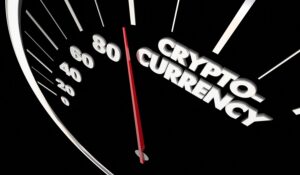
If you’re looking to trade cryptocurrency, then you’re going to need an exchange. Read on as we take a look at centralized vs decentralized exchanges.
Cryptocurrencies are the new alternative to banks.
Many exchanges and points of trade are akin to a bank. They provide a centralized marketplace, which some refer to as a “middleman.” Decentralized exchanges and technologies aim to disrupt this investment approach. They allow peer-to-peer transactions without a middleman involved.
Comparing centralized vs. decentralized exchanges will result in the best choice.
Best for Security – Decentralized
The traditional banking system is a part of society. It’s incredible how many people don’t take precautions to secure their finances online.
Reputable exchanges such as Coinbase work with AML, KYC, and law enforcement agencies. They do this to ensure your funds are well protected.
Yet, these exchanges are still prone to phishing scams and keylogger hacks. So decentralized exchanges are more secure, especially when used with a hardware wallet.
Best for Privacy – Decentralized
As discussed above, reporting methods used by centralized exchanges can be safe. In that, they deter potential thieves from stealing your assets.
Yet, this is the very same reason many wish to remain private. Even the law-abiding millionaire who lives off-grid needs to remain private. This will reduce the risk of a five-dollar wrench attack.
Not everybody is a criminal. Thus, the anonymity of decentralized exchanges makes them the best choice for privacy.
Choice of Coins – Centralized
It’s a simple fact that not every single coin is available on every single DEX. If you want to diversify your portfolio further, then centralized exchanges offer choice.
Yet, you may find that many smaller coins only exist on exchanges with an unproven history. So, this approach needs great care and diligence. Think about what you are willing to sacrifice risk-wise to get your chosen asset.
Ease of Use – Draw
In this case, ease of use is subjective. It might be that for the non-tech savvy, Coinbase does everything they need. Sign up, pass verification checks, buy Ethereum with a debit card, and hold it until the end of time.
If you want to exchange their Ethereum for many other tokens and stable coins, using a DEX is simple. All you do is connect the wallet to Coinbase and swap the coins. That way you know your only link is to the original exchange. After all, you have to verify somewhere to transact in your native currency.
Check out this article for an excellent guide on how to connect the two.
Centralized vs. Decentralized – The Winner
Like most choices in the space, finding a clear winner in the centralized vs. decentralized discussion comes down to spreading risk and assessing your own needs.
Some crypto-assets don’t exist on decentralized exchanges. For that, you’ll need an account with a reliable, trustworthy exchange such as Coinbase. More and more innovators are adapting these for a decentralized network. One example of this is WBTC (Wrapped BTC), which mirrors its original value, like a stable coin.
So, while decentralized exchanges are the future of safe, reliable trading, it’s a good idea to use both. That way, you can spread your assets gives the best trading experience.
Keep reading and out more insightful info about the world of decentralized finance!
